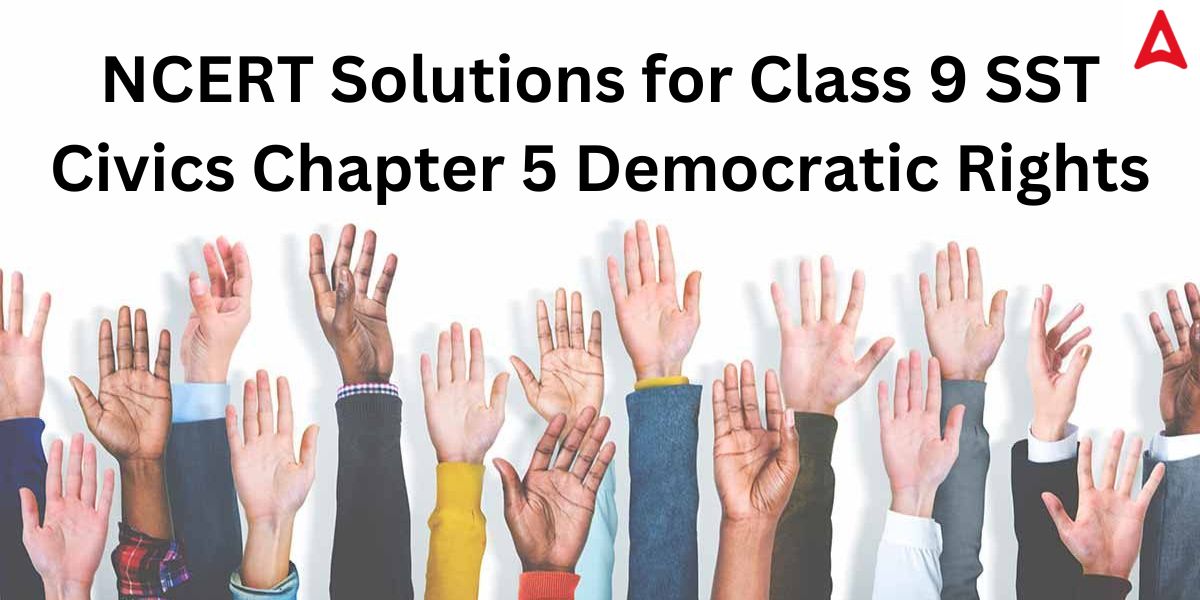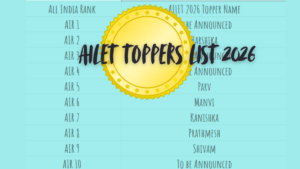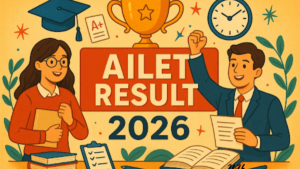NCERT Solutions Class 9 SST Civics Chapter 5 Democratic Rights
NCERT Solutions for Class 9 SST Civics Chapter 5 Democratic Rights notes are provided in this article. NCERT Solutions for class 9 is the finest resource for getting a high score on the class 9 Examination. Adda247 Expert faculty team prepared NCERT Solutions for Class 9 SST Civics Chapter 5 Democratic Rights exercises of that chapter for a better grasp of the topics. These NCERT Solutions answer all questions in an easy and simple manner. These solutions will help you understand the concepts covered in the chapter completely. By writing these answers in the exam students will undoubtedly be able to achieve high scores. Keep learning with Adda247.
NCERT Solutions for Class 9 SST Civics Chapter 5 Democratic Rights Pdf
NCERT Solutions for Class 9 SST Civics Chapter 5 Democratic Rights Pdf is given in pdf format so students can easily download it for future use. Click here to download NCERT Solutions for Class 9 SST Civics Chapter 5 Democratic Rights
Class 9 SST Civics Chapter 5 Democratic Rights Video Explanation
Class 9 SST Civics Chapter 5 Democratic Rights Summary
Class 9 SST Civics Chapter 5 Democratic Rights illustrates how a democratic government must be re-elected by the people on a regular basis in a free and fair manner and includes a few analyses of actual situations to help readers understand what it would be like to live without rights. Topics include in the Class 9 SST Civics Chapter 5 Democratic Rights are:
1. Life Without Rights
- Prison in Guantanamo Bay
- Citizens’ rights in Saudi Arabia
- Ethnic massacre in Kosovo
2. Rights in a Democracy
- What are rights?
- Why do we need rights in a democracy?
3. Rights in the Indian Constitution
- Right to Equality
- Right to Freedom
- Right against Exploitation
- Right to Freedom of Religion
- Cultural and Educational Rights
- How can we secure these rights? – Right to Constitutional Remedies
4. Expanding Scope of Rights
NCERT Solutions for Class 9 SST Civics Chapter 5 Democratic Rights Questions with Answers
1. Which of the following is not an instance of an exercise of a fundamental right?
- Workers from Bihar go to Punjab to work on the farms
- Christian missions set up a chain of missionary schools
- Men and women government employees get the same salary
- Parents’ property is inherited by their children
Answer. 4. Parents’ property is inherited by their children
2. Which of the following freedoms is not available to an Indian citizen?
- Freedom to criticise the government
- Freedom to participate in armed revolution
- Freedom to start a movement to change the government
- Freedom to oppose the central values of the Constitution
Answer. 2. Freedom to participate in armed revolution
3. Which of the following rights is available under the Indian Constitution?
- Right to work
- Right to an adequate livelihood
- Right to protect one’s culture
- Right to privacy
Answer. 3. Right to protect one’s culture
4. Name the Fundamental Right under which each of the following rights falls:
- Freedom to propagate one’s religion
- Right to life
- Abolition of untouchability
- Ban on bonded labour
Answer.
- Right to Freedom of Religion
- Right to Freedom
- Right to Equality
- Right against Exploitation
5. Which of these statements about the relationship between democracy and rights is more valid? Give reasons for your preference.
- Every country that is a democracy gives rights to its citizens.
- Every country that gives rights to its citizens is a democracy.
- Giving rights is good, but it is not necessary for a democracy.
Answer. Statement (a), “Every democratic country grants rights to its citizens,” is more accurate given that not every nation that gives rights to its populations is also a democracy. Focusing on and working for the welfare of its population is a fundamental aspect of being a democratic country. As a result, it is essential that it give its citizens rights.
6. Are there restrictions on the right to freedom justified? Give reasons for your answer.
- Indian citizens need permission to visit some border areas of the country for reasons of security.
- Outsiders are not allowed to buy property in some areas to protect the interest of the local population.
- The government bans the publication of a book that can go against the ruling party in the next elections.
Answer.
- Yes, it is justified since it protects residents from threats to life or property. Although citizens are allowed to move freely across the country at will, there are specific areas (particularly borders) where they may face a security risk.
- This is justified in some circumstances in order to prevent resource exploitation in a specific area and to maintain the ethnic or cultural uniqueness of the local populations.
- No, this claim cannot be justified because it violates upon the right to free speech and expression. Every citizen of the nation has the right to expression and free speech.
7. Manoj went to a college to apply for admission into an MBA course. The clerk refused to take his application and said “You, the son of a sweeper, wish to be a manager! Has anyone done this job in your community? Go to the municipality office and apply for a sweeper’s position”. Which of Manoj’s fundamental rights are being violated in this instance? Spell these out in a letter from Manoj to the district collector.
Answer. There has been a violation of Manoj’s fundamental right to equality. The right to equality grants the ability to find work regardless of gender, caste, or religion. The right to freedom is the other one that has been violated. This right grants people the freedom or personal liberty to search for employment.
The District Collector
Address:
Date:
Subject: Fundamental Rights Violation
Dear Sir/Madam,
My name is Manoj. I applied for an MBA programme to pursue my goal of becoming a manage But the office clerk turned down my application and made racist remarks. Go to the municipal office and submit an application for sweeper employment, the clerk told me. His selection was influenced by his class bias. It is obvious that my right to freedom and equality is being violated. Nobody should discriminate against me because of my class or caste; I am free to choose the profession I wish to pursue. I ask that you look into the matter and take the necessary action.
Thanking you
Manoj.
8. When Madhurima went to the property registration office, the exercises Registrar told her, “You can’t write your name as Madhurima Banerjee d/o A. K. Banerjee. You are married, you must give your husband’s name. Your husband’s surname is Rao. So your name should be changed to Madhurima Rao.” She did not agree. She said, “If my husband’s name has not changed after marriage, why should mine?” In your opinion who is right in this dispute? And why?
Answer. Madhurima is right in this situation. Her right to privacy is being violated by the registrar. Madhurima has complete discretion over whether to use her husband’s or her father’s last name. Her right to privacy has been violated by the Registrar act. Additionally, a theological tradition that considers women to be weaker and inferior is where the social issue of adopting one’s husband’s surname first emerged. Every individual in a democracy like India is entitled to equality. Therefore, a girl has the right to keep her father’s name regardless of her marital status or single status.
NCERT Solutions for Class 9 SST Civics Chapter 5 Democratic Rights -FAQs
Q. What are the six democratic rights?
The fundamental rights of all citizens include the rights to equality, freedom, and religious freedom as well as the rights to constitutional remedies, protection from exploitation, and cultural and educational rights. Citizens shall enjoy equality and be free to practice any religion, pursue any form of education, or adopt any culture.
Q. How can I access the online PDF version of the NCERT Solutions for Class 9 SST Civics Chapter 5 Democratic rights?
Ans. The NCERT Solutions for Class 9 SST Civics Chapter 5 Democratic rights PDF may be downloaded using the link in the article.
Q. What are the advantages of using Adda247’s NCERT Solutions for Class 9 SST Civics Chapter 5 Democratic rights?
Ans. The advantages of using NCERT Solutions for Class 9 SST Civics Chapter 5 Democratic rights from Adda247 include the following:
-
- The NCERT solution as well as a video explanation
- Additionally, a PDF is included, which can be downloaded and saved for future use.









 AILET 2026 AIR 1: Check Full Toppers Lis...
AILET 2026 AIR 1: Check Full Toppers Lis...
 AILET Result 2026 OUT, How to Download S...
AILET Result 2026 OUT, How to Download S...
 CUET PG Crash Course 2026: Subject-Wise ...
CUET PG Crash Course 2026: Subject-Wise ...














